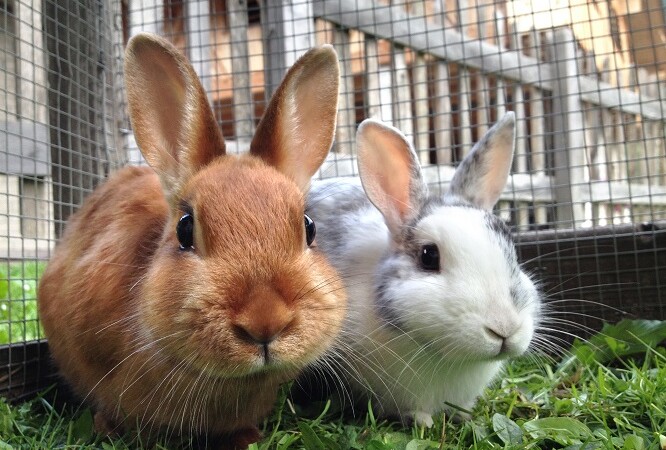

Rabbits have open rooted teeth, which means they constantly grow. Because of this they have very specific dental requirements which, if they are not met, can lead to further health problems. Below are tips on how help your Rabbits.
Hay is not just bedding for rabbits, it should also make up around 80-90% of their diet. They are natural grazers and the constant chewing of fibrous plant matter helps wear down their teeth, as well as assisting their gut health and providing important nutrition. As well as scattering hay in and around their cage for them to make a cosy nest from, make sure to provide them with a clean source of hay that hasn’t been sat on.
Hay racks or interactive hanging feeders are a great way to provide fresh hay and is great enrichment. There are many different types of dried grasses, plants and herbs on the market that will make a welcome addition to your small furry’s diet. Hay should not be confused for straw, which is tougher and less nutritious.
Supplement their diet with a variety of vegetables, herbs and fruit. Not only are these tasty treats that your Rabbits will love you for, but they are very nutritious and will help maintain good dental health. Fresh veggies should make up around 5-15% of their diet, favouring dark leafy greens such as kale, and only occasionally including sugary fruit like apple. Carrots being good for bunnies are a common misconception; they are actually fairly high in sugar and should be offered sparingly. The remaining 5% of their diet should be made up of a good quality pellet food, although these diets don’t tend to do much for their dental health.
Familiarize yourself with the signs of dental disease in rodents so you can quickly identify if your pet has a potential problem. If caught early, dental issues are usually very treatable but if left can have knock on health effects that will cause complications.
Going off certain foods, dribbling, weight loss, swellings around the jaw or nasal discharge are all common signs to look out for. Sometimes even with correct diet and chews, if the teeth are not lined up correctly dental treatment may be required. If you notice any of these signs and are concerned.
 Contact Jaguza Support
Contact Jaguza Support